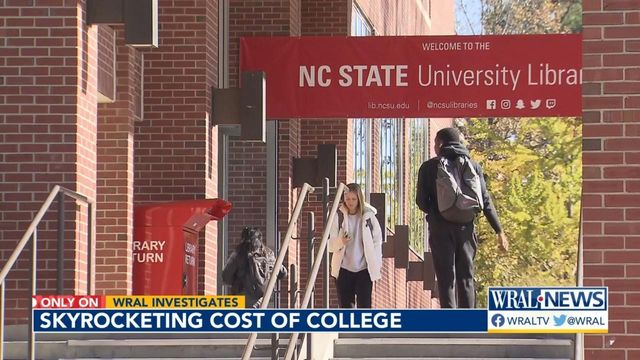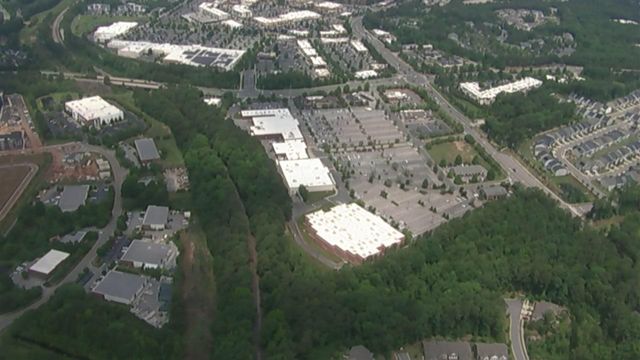'How do people pay for this?': WRAL Investigates the rising costs of college
The cost of higher education is getting higher and higher. For many parents who are in the thick of college applications, the cost comes with sticker shock. WRAL Investigates found the cost to attend state universities is far out pacing inflation over the past 20 years
As an NC State University educator and a parent, Braska Williams, knows the challenges of paying for college, "It’s hard you know when you have that conversation with a parent and they’re like, I just can’t afford this for my child, so it’s heartbreaking."
One of his daughters just graduated from State and the other is currently enrolled. He says the college conversation took him by surprise, especially compared to when he and his wife attended, "How do people pay for this? I mean, it’s a lot."
Fortunately, Williams’ daughters’ hard work in the classroom paid off. "How in the world are we going to afford this? To be honest with you, I don’t know what we would have done if my daughters didn’t get full academic scholarships," he told us.
Many parents aren’t so lucky and wonder how college got so much more expensive over the past 20 years. To get a better idea of the rising cost of attendance, we examined the price of an in-state student living on campus plus inflation over two decades at state-run schools. We then subtracted decreases in per-student state funding plus inflation, because in theory, that would be a fair cost to pass on to students. We found that today’s cost of attendance is still much higher.
Based on our math in real dollar-to-dollar comparisons, the price to attend college have jumped 17% at UNC Chapel Hill, 19% at UNC Greensboro, 52% at East Carolina University, 53% at State, 61% at Fayetteville State University and despite per pupil funding nearly doubling since 2002, cost of attendance is up 174% at NC Central University.
"We’ve sold college as the ticket, the golden ticket," says economist Dr. Beth Akers with the American Enterprise Institute. She has studied various theories for the rising cost, including reduced per pupil state funding, increased administration, but always steers back to simple supply and demand.
"As long as they’ve got an eager incoming class willing to pay whatever price tag they’re throwing out there there’s really no incentive for them to try to stay lean and mean," she concludes.
The price tag and impact on families is not lost by UNC leaders. "This is increasingly a kitchen table issue for families," says Dr. Andrew Kelly, the Vice President of Strategy and Policy for the UNC system.
Kelly argues the cost of attending state school is a good deal.
"The truth is if you are a North Carolina resident you are far better off than most, nearly every other state with few exceptions," Kelly said.
A federal education clearinghouse backs up that sentiment. North Carolina ranks fourth in college affordability and seventh in student success, which is defined as those that graduate within five years.
Kelly says the system is also doing all it can to provide families with the financial help they need, "We need families to understand that there is money available for them."
North Carolina has also made several efforts to keep tuition in check. The NC Promise caps tuition at $500 for four schools - Elizabeth City State, UNC Pembroke, Fayetteville State and Western Carolina. Students still have expenses for room and board, meal plans and student fees. Students at every state institution also have a guarantee their freshman year tuition rate will not increase as long as they graduate within five years. Kelly also notes students haven’t seen tuition increases in six years.
"It’s more than a good investment for those students who complete and in particular those that complete on time," Kelly says.
An investment for the future of our children and a hard financial lesson for many families like those that Braska Williams works with, "You figure if you have a pretty decent job you could afford college, but there’s no way we could have afforded it."













